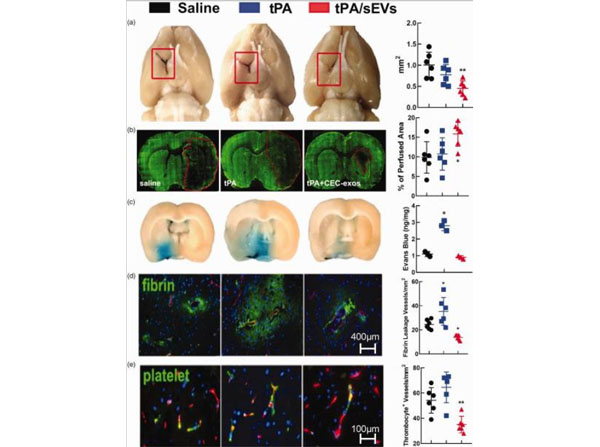Datasheet is currently unavailable. Try again or CONTACT US
Collagenase/Elastase
MB-126-0001
1 Each
Lyophilized
Porcine pancreatic elastase, Clostridium histolyticum
Shipping info:
$50.00 to US & $70.00 to Canada for most products. Final costs are calculated at checkout.
Product Details
Collagenase/Elastase - MB-126-0001
Clostridium histolyticum, Bacterial collagenases, collagenase, Porcine pancreatic elastase, Protease, ColH, ColG, Chymotrypsin-like elastase family member 1, Elastase-1
Porcine pancreatic elastase, Clostridium histolyticum
Enzyme
Target Details
CELA1, colH, colG - View All CELA1, colH, colG Products
Collagenase/Elastase is partially purified and 0.22µm filtered and contains 22,500 units of collagenase type 1 and 30 units of elastase per vial. Collagenase type 1 has the original balance of collagenase, caseinase, clostripain and tryptic activities. The collagenase assay is a modification of the Mandl collagen digestion procedure wherein collagenase is incubated for five hours with native collagen and the extent of collagen breakdown is determined using the Moore and Stein, JBC, 176, 367, (1948) colorimetric ninhydrin method. Amino acids released are expressed as micromoles L-leucine per milligram collagenase in 5 hours at 37°C, pH 7.5. Caseinase activity, a measure of non-specific proteolytic activity, is determined using the above assay and substituting 25 milligrams vitamin free casein for the collagen substrate. Caseinase activity is calculated as for collagenase activity. Clostripain activity is measured after activation in 2.5 mM dithiothreitol (DTT). One unit hydrolyzes one micromole of BAEE per minute at 25°C, pH 7.6, after activation. Tryptic activity is assayed using the same BAEE method as clostripain, but without activation. Porcine pancreatic elastase has a molecular weight of 25.9 kDa, and a pH optimum of 8.5. Suitable for the isolation of Type II lung cells.
Q9X721 - UniProtKB
Application Details
Elastase is assayed using a method adapted from that of Feinstein et al., Biochem. Biophys. Res. Comm., 50, 1020 (1973) and using the more soluble substrate of Bieth et al., Biochem. Med., 11, 350 (1974). 1 SucAla3NA unit is approximately equivalent to 6 elastin digestion units. Aqueous liquid suspensions should be aseptically handled to avoid bacterial contamination. Due to the viscous nature of the aqueous suspension the vial should be rinsed to recover contents. One Unit cleaves one micromole of N-succinyl-L-alanyl-L-alanyl-L-alanine-p-nitroanilide per minute at 25°C, pH 8.0. The collagenase assay is a modification of Mandl wherein collagenase is incubated for five hours with native collagen and the extent of collagen breakdown is determined using the Moore and Stein, JBC, 176, 367, (1948) colorimetric ninhydrin method. Collagenase is typically used at concentrations from 0.05 % to 0.5 % (w/v) in balanced salt solutions such as Hank’s, Earle’s and others. Specific conditions for reactivity should be optimized by the end user.
Formulation
≥20000 units collagense/30 units elastase per vial
None
None
None
10.0 mL
Restore with deionized water (or equivalent)
Shipping & Handling
Ambient
Store vial at 2 - 8 ° C prior to opening. Aliquot contents and freeze at -20° C or below for extended storage. Avoid cycles of freezing and thawing. Centrifuge product if not completely clear after standing at room temperature. Dilute only prior to immediate use.
Expiration date is one (1) year from date of receipt.
Collagenase preparations contain several isoforms of two different collagenases, a sulfhydryl protease, clostripain, a trypsin-like enzyme, and an aminopeptidase. This combination of collagenolytic and proteolytic activities is effective at breaking down intercellular matrices, the essential part of tissue dissociation. Crude collagenases are widely used in enzymatic primary cell isolation and tissue dissociation procedures. Most researchers employ either crude collagenase preparations such as Types 1, 2, 3, and 4 or chromatographically purified collagenase; the latter usually combined with secondary enzymes such as elastase, hyaluronidase, etc. Elastase is a serine protease that also hydrolyzes amides and esters. It is produced in the pancreas as an inactive zymogen, and activated in the duodenum by trypsin. The following information applies to porcine elastase. While elastase will hydrolyze a wide variety of protein substrates, it is unique among proteases in its ability to hydrolyze native elastin, a substrate not attacked by trypsin, chymotrypsin or pepsin. Soybean trypsin inhibitor and kallikrein inhibitor suppress proteolytic but not elastolytic activity. Collagenase is ideal for researches focused in Stem Cell and Biomarker Research.
This product is for research use only and is not intended for therapeutic or diagnostic applications. Please contact a technical service representative for more information. All products of animal origin manufactured by Rockland Immunochemicals are derived from starting materials of North American origin. Collection was performed in United States Department of Agriculture (USDA) inspected facilities and all materials have been inspected and certified to be free of disease and suitable for exportation. All properties listed are typical characteristics and are not specifications. All suggestions and data are offered in good faith but without guarantee as conditions and methods of use of our products are beyond our control. All claims must be made within 30 days following the date of delivery. The prospective user must determine the suitability of our materials before adopting them on a commercial scale. Suggested uses of our products are not recommendations to use our products in violation of any patent or as a license under any patent of Rockland Immunochemicals, Inc. If you require a commercial license to use this material and do not have one, then return this material, unopened to: Rockland Inc., P.O. BOX 5199, Limerick, Pennsylvania, USA.

